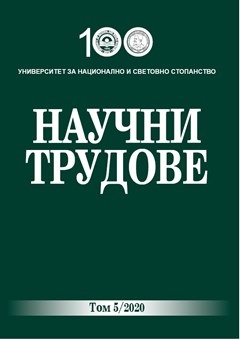Влияние на парична политика на ЕЦБ при негативни лихвени проценти върху вътрешните инвестиции и икономическия растеж в Еврозоната и България
ECB’ Negative Interest Rate Monetary Policy Effects On Domestic Investment and Economic Growth in Euroarea and Bulgaria
Author(s): Anika PetkovaSubject(s): Politics / Political Sciences, Politics, EU-Approach / EU-Accession / EU-Development, Fiscal Politics / Budgeting
Published by: Университет за национално и световно стопанство (УНСС)
Keywords: monetary policy; interest rate; investment activity; economic growth; international trade
Summary/Abstract: There are sufficient changes in monetary policy after the beginning of the economic crisis since 2007. We have witnessed a transition from conventional to unconventional monetary policy, and instruments used are highly discretionary and stimulating. The negative interest rate policy (NIRP) leads to contradictory results for different economies. During 2008 – 2019 significant growth in investment activity in the Eurozone and in Bulgaria is not observed and therefore there are not high and sustainable economic growth rates, which are one of the main goals of the unconventional monetary policy. Possible explanation of aforementioned negative developments in investment incentives and in economic activity steam from uncertainty and mistrust of investors, which are further exacerbated by various geopolitical disruptions in international trade movements.
Journal: Научни трудове на УНСС
- Issue Year: 5/2020
- Issue No: 5
- Page Range: 205-217
- Page Count: 13
- Language: Bulgarian

